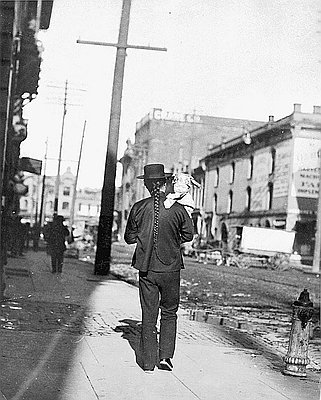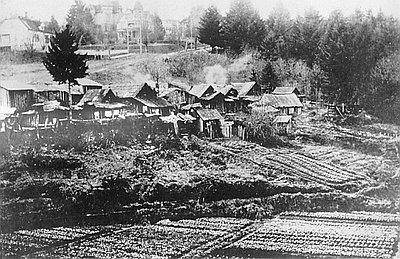- Catalog No. —
- Willamette Farmer April 1, 1882
- Date —
- April 1, 1882
- Era —
- 1881-1920 (Industrialization and Progressive Reform)
- Themes —
- Agriculture and Ranching, Government, Law, and Politics, Race, Ethnicity, and Nationality, Trade, Business, Industry, and the Economy, Transportation and Communication
- Credits —
- Oregon Historical Society
- Regions —
- Willamette Basin
- Author —
- Willamette Farmer
News Article, Passage of the Chinese Bill
The Willamette Farmer, a newspaper that was published weekly between 1869 and 1887, promoted Willamette Valley agriculture. This article reflects the sentiments of many Oregon farmers, merchants, and business owners that “the American continent should be kept as a home for the white races that are our natural kindred.” They feared that low-wage Chinese workers would eliminate job opportunities for Caucasians and European immigrants. Chinese immigrants arrived in Oregon as early as 1856 to work in mining, railroad construction, fish canneries, and other businesses. Some Euro American settlers believed that the Chinese did not contribute to the local economy because they sent most of their wages to family members in China. Underscoring those economic issues was a general fear, hatred, and distrust of other cultures.
Because of the 1882 Chinese Exclusion Act, which prohibited Chinese immigration to the United States for ten years, Oregon’s Chinese population increased by only thirty people between 1880 and 1890, from 9,510 to 9,540. In separate legislation, Chinese immigrants were also denied citizenship. The Knights of Labor, a national labor union, led the anti-Chinese movement in the West. Between 1885 and 1887, mobs forcibly expelled Chinese from Seattle and Tacoma and murdered Chinese laborers in Wyoming and Oregon’s Hell’s Canyon region.
Further Reading:
Schwantes, Carlos A. “Protest in a Promised Land: Unemployment, Disinheritance, and the Origin of Labor Militancy in the Pacific Northwest.” Western Historical Quarterly 13, 1982: 373-90.
Lesley, Craig. River Song. Boston, Mass., 1989.
Written by Kathy Tucker, © Oregon Historical Society, 2002.
Related Historical Records
-
Chinese Man with Child
Many hundreds of Chinese immigrants began arriving in Oregon in the mid-1850s. During these early years of immigration, most male Chinese immigrants, whether they were laborers, merchants, or …

-
Chinese Vegetable Gardens, Portland
This photograph, dating from circa 1905, features Chinese shanties and vegetable gardens in Portland. The gardens were located on the site of the present-day Multnomah Athletic Club and …

